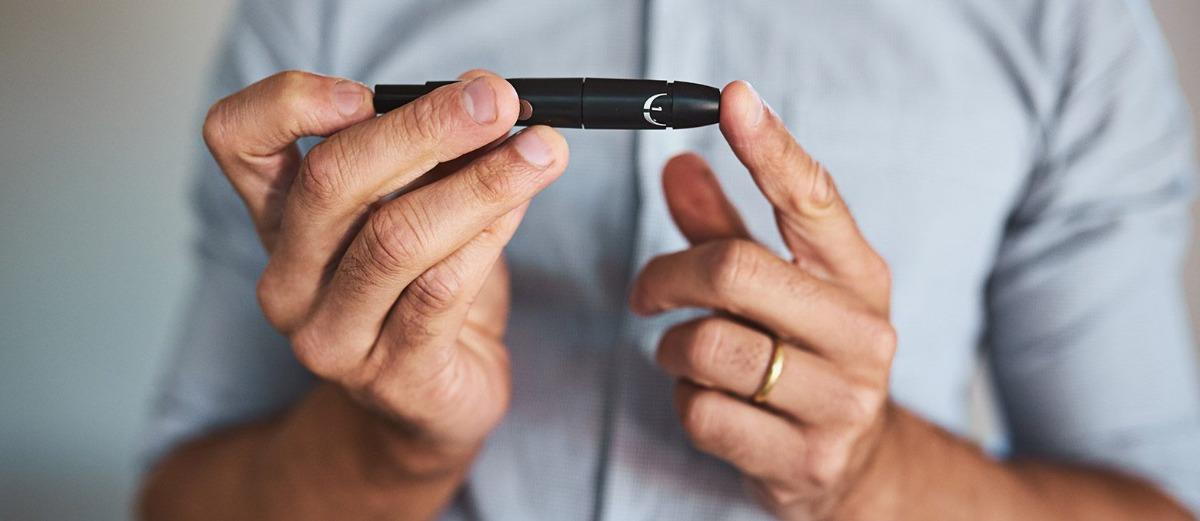
People with diabetes are at a higher risk of developing hearing loss. Let's explore the link between these two conditions, and how people with diabetes can take care of their hearing.
Around 30 million people in the United States alone have diabetes. Among these individuals, a high percentage will develop hearing loss. Why is this the case, and how can people with diabetes take care of their hearing?
Before we can understand the relationship between diabetes and hearing loss, it’s important that we understand diabetes and how it affects people.
What is diabetes?
Put simply, diabetes is a condition in which your blood glucose levels are too high. Still, there are various types of the disease that affect people in different ways. With Type 1 diabetes, the body fails to produce any insulin. Those with Type 2 diabetes produce insulin, but their body doesn’t respond to it properly and they might not make enough. Some pregnant women develop gestational diabetes, though this usually goes away after birth.
Diabetes can be managed with exercise, meal plans, medication, and insulin injections. There are many helpful treatment strategies for diabetes nowadays that can prevent the worst effects of the disease, such as damage to the blood vessels, eyes, kidneys, and nerves.
Because, over time, diabetes can cause problems with the blood vessels and nerves inside the ears, there is a risk of hearing loss and tinnitus. Although the link between diabetes and hearing loss is not fully understood, there are still some explanations for this connection.
The link between diabetes and hearing loss
According to a study by the National Institutes of Health (NIH), diabetics are more than twice as likely to develop mild to moderate hearing loss, compared to those without diabetes. The existing evidence points towards blood circulation as the problem: while good circulation helps the hair cells inside the cochlea pick up sound, diabetes causes damage to the blood vessels and the hair cells. When these hair cells begin to deteriorate, sensorineural hearing loss occurs.
The issue is that once these hair cells are damaged, they cannot heal or regenerate. Sensorineural hearing loss is permanent, but it can be treated or alleviated with hearing aids. Sensorineural hearing loss also occurs slowly over time, making it hard to detect. Many people do not realize they have hearing loss until they are seriously impacted by what they lost, and then it’s too late to preserve it.
As a result, hearing loss prevention is the top priority. Diabetics must take special care to monitor their hearing, prevent noise exposure, and compensate for their hearing loss if it occurs.
When we are exposed to loud noises, it can wear down the cells inside our cochlea. After too much damage, our ears begin having trouble detecting certain volumes and tones. The poor circulation and nerve damage associated with diabetes can exacerbate hearing loss in diabetics.
Prevention and detection are the two most important aspects of addressing hearing loss. Knowing the signs of sensorineural hearing loss can help you treat the problem before it begins negatively affecting your life and relationships.
Signs of hearing loss
The signs of sensorineural hearing loss are subtle, so it’s important to recognize them when you can. Many of these might be brushed off or attributed to other conditions, so it’s important for diabetics to remain vigilant and remember that mild hearing loss is not always obvious. Symptoms and signs of hearing loss include:
- Asking people to repeat themselves often
- Needing to turn up the volume on the radio or TV
- Struggling to hear other people’s voices
- Trouble understanding speech in noisy conditions, like parties, restaurants, or rooms full of people
- Feeling unusually exhausted after social gatherings or parties
- Having to focus hard to understand people talking
If you notice any of these symptoms in yourself, consider going in for a hearing screening. While you need to visit a hearing care professional to get a full panel audiogram, you can test your hearing quickly using the Signia Hearing Test. This online test can give you an idea of what your hearing is like. If you believe you have hearing loss, you can go in for a full evaluation.
Diabetes and tinnitus
Tinnitus is common among diabetics with hearing loss. Tinnitus can come in many different forms, but most often it’s a persistent sound. These sounds can include:
- Buzzing
- Humming
- Ringing
- Roaring
- Hissing
These phantom noises can vary in pitch and volume, and they might fluctuate. For instance, sometimes your tinnitus might just be background noise to whatever you’re doing. Other times, it might drown out your ability to hear anything else.
Tinnitus can be treated in tandem with hearing loss or alleviated using tinnitus-specific treatments. If you have tinnitus, it can be a sign that something more serious, like actual hearing loss, is the root of the problem.
Protecting your hearing while diabetic
It’s important to remember that sensorineural hearing loss can occur in anyone, regardless of age. In fact, many people under the age of 50 have mild hearing loss, and this number is higher among diabetics. Diabetics are more likely than any other group to experience hearing loss at a young age.
You can do this by:
- Turning down the volume. When you’re wearing earbuds or headphones, keep the volume low and limit yourself to a few hours per day. Constantly funneling sound into your ears is a serious form of noise exposure. You should also avoid playing the TV or radio too loud.
- Wear earplugs to concerts, festivals, and car shows. While some people find earplugs silly or pointless, they can help protect yourself from hearing loss.
- Take breaks. Humans are not meant to live in places with constant sound. Turn off your music and television from time to time and enjoy the quiet. This gives your ears a chance to rest and recover.
- Protect your hearing at work. If you work in loud conditions like the military, around machinery, or in construction, make sure to take the necessary precautions. Workers in these areas are the most likely to lose their hearing, and diabetes puts you more at risk.
- Get tested regularly. You should get your hearing tested every few years, if not more often. Diabetics, in particular, should make a habit of getting audiograms.
Click here to access the original article by Signia.

